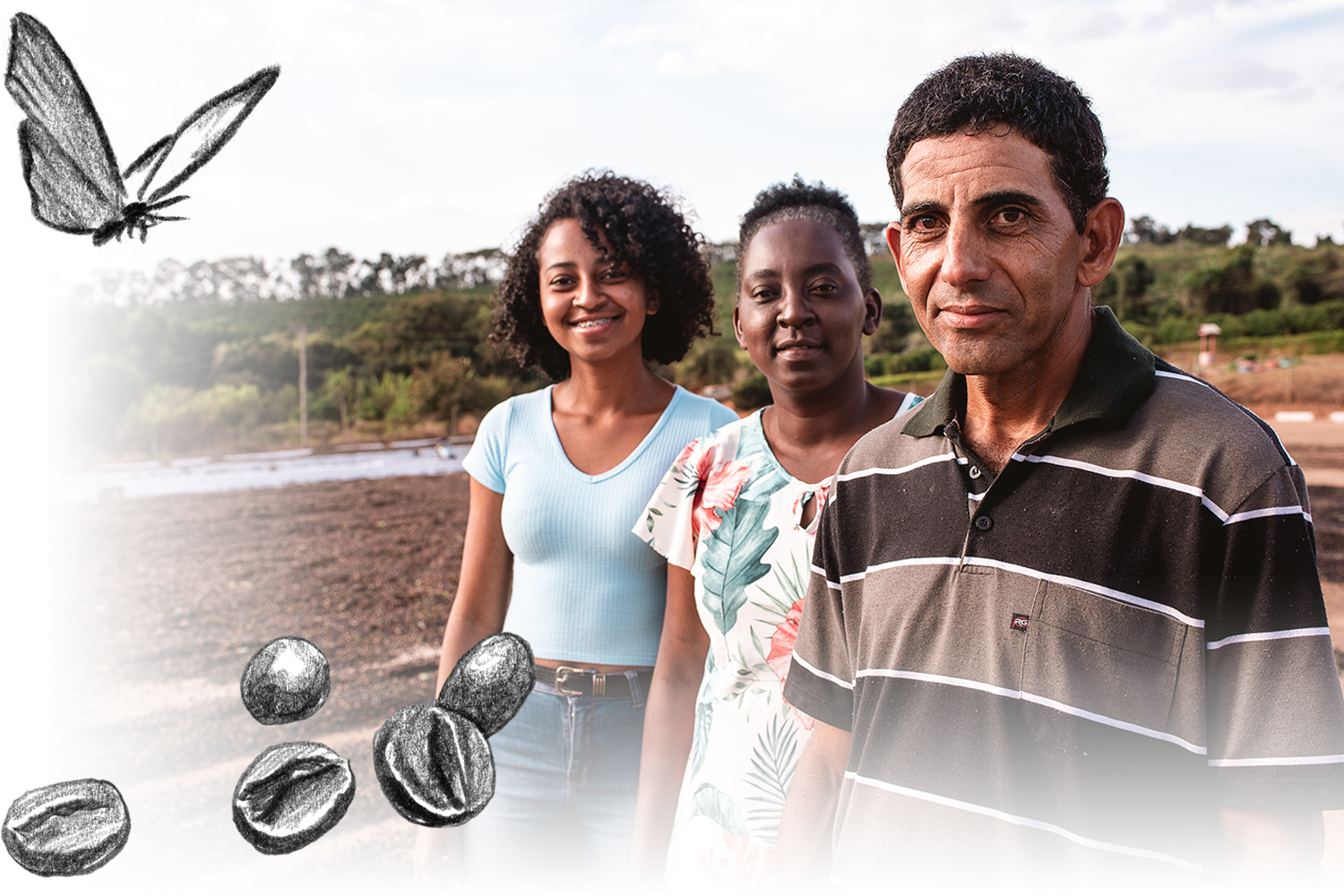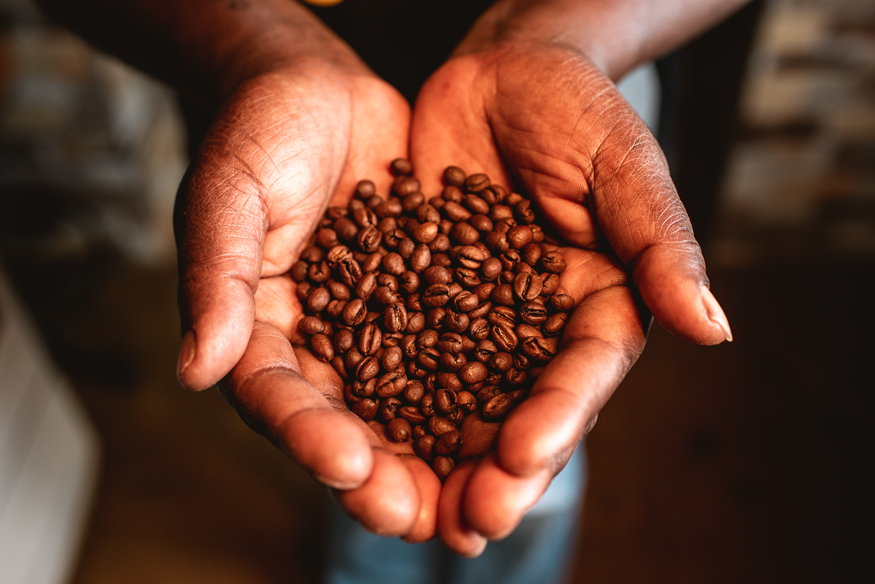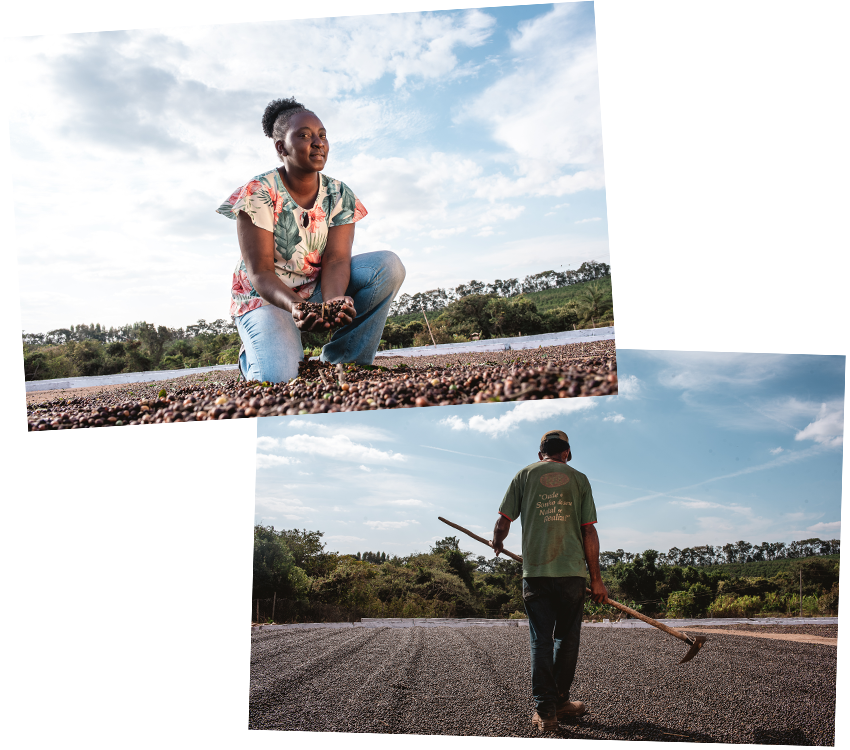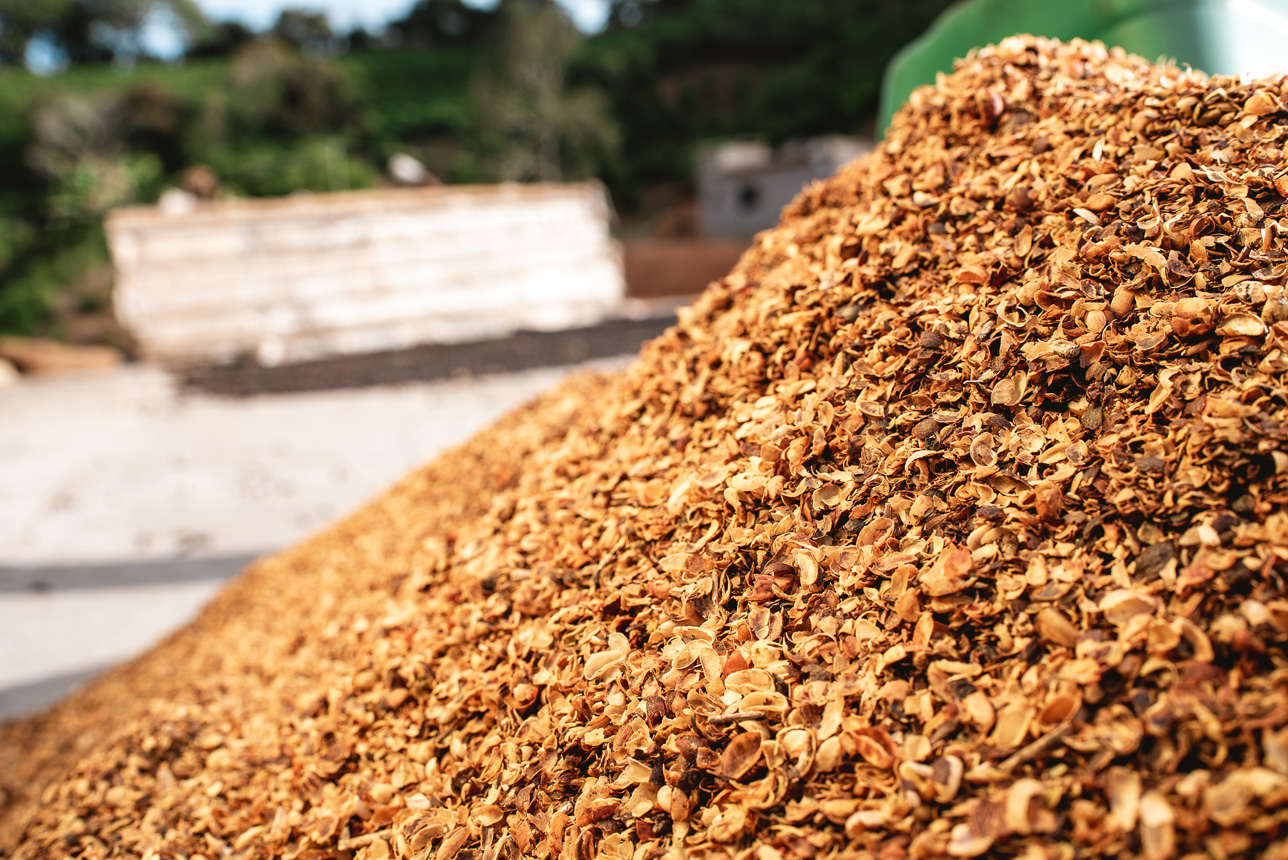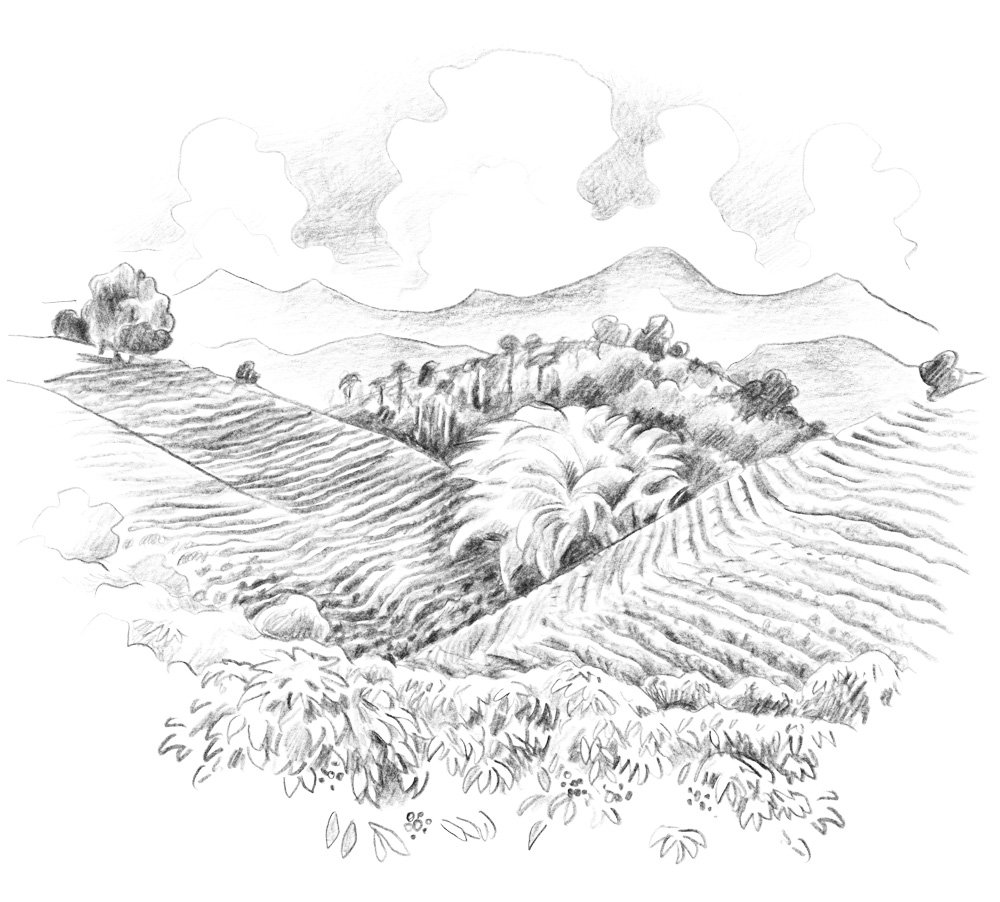Despite many years of hard work and experience in coffee farming, the family business has faced mounting challenges in recent years. They are increasingly concerned about climate change. On top of that, the price of fertilisers is rising. “These are problems that are impossible to calculate, and they significantly affect our work and our income. A period of frost followed by a long drought in 2021 caused crop failures this year," explained Roberto Peixoto.
When they heard about the ‘Back to the Roots’ project that the Melitta Group is running together with the Hanns R. Neumann Foundation in the Brazilian region of Minas Gerais, the family was immediately interested. “We are open to new methods and discoveries that help us in our work,” declared Roberto Peixoto.
The project is about finding ways to reuse organic waste in coffee production, such as the pulp from coffee cherries, as fertiliser. The aim is not only to eliminate the need for chemical fertilisers and thereby increase the profitability of coffee growing, but also to improve the quality of the soil and make the plants more robust and resistant to climate fluctuations. To achieve this, the Melitta Group and the Hanns R. Neumann Foundation are working together with Brazilian waste management experts and scientists, including from the renowned Universidade Federal de Lavras (UFLA).





















